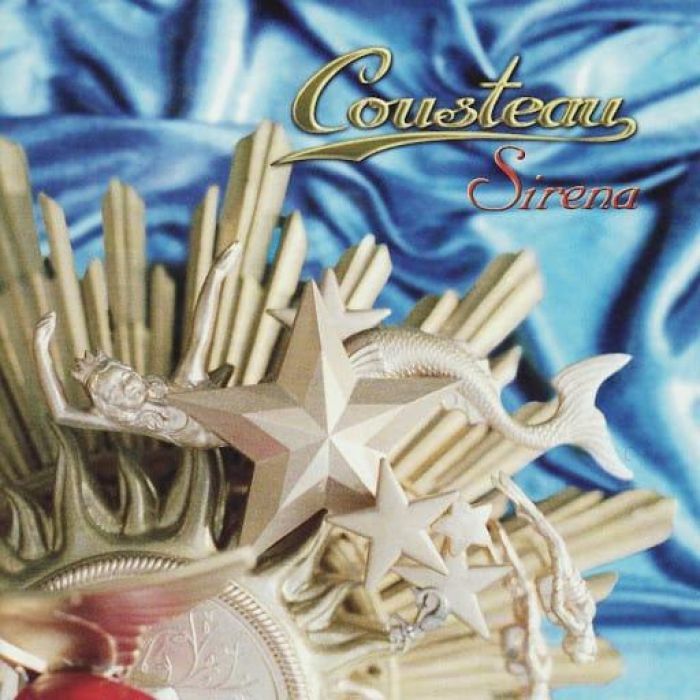Sirena by Cousteau (Review)

Bedroom recordings of one heartbroken man and his guitar are plenty nice. But there’s something somehow more satisfying about that same sentiment expressed through blues and jazz influences, string arrangements, tickled ivories, and a voice that’s half velvet croon and half whiskey. And Cousteau have all of those elements in spades.
With any group of this sort, it’s the vocals that make or break the music. Fortunately, Cousteau has Liam McKahey, whose baritone displays the same flexibility as that of The Czars’ John Grant, moving from Nick Cave-like forebodings to sighing of the “ever so dreamy” sort. And it certainly doesn’t hurt that the music, penned by Davey Ray Moore, is uniformly splendid, providing the right sultry, smoky backdrops for McKahey’s voice. Lightly brushed drums, reverbed guitars, and lush piano melodies are the norm here, along with the occasional tasteful string and horn arrangements.
You can’t help but get the feeling that many of these songs were written after either a night out at the pub trying to drown memories or after waking up to a “Dear John” letter. It’s hard to pick a highlight, but my money would have to be on “Peculiarly You” or “Please Don’t Cry.”
The former, a regret-laden look at a woman in a self-destructive woman, moves at a languid, submerged pace. Craig Vear’s restrained drumming and Moor’s soft piano allows McKahey’s sleepy, whiskey-soaked vocals to spin a tale of regret and helplessness (“And I ain’t come to find/And I ain’t tryin’ to save you/There’s not a lot I can do/It’s peculiarly you”). The latter finds McKahey’s voice a little freer and lighter, even reassuring, and also provides time for Robin Brown to shine on the guitar; his playing feels more artistic and painterly than mere soloing, adding deft touches that float right along with McKahey’s voice.
However, those are only two. It would be shame to ignore the nautical underpinnings of the murky “Last Secret of the Sea,” where Moor’s piano rolls and flows like the incoming tide and Brown’s guitar filters through like a distant beacon. And then there’s “(Damn These) Hungry Times,” where the horns and strings shine in the most Bacharach-esque of ways; Eric Matthews had better hurry up and release a new album or else Cousteau is going to leave him in their dust.
Despite the group’s British origins, there’s a distinctly West Coast feel. Maybe it’s the image of sultry Los Angeles nights and a smoke-filled club that wouldn’t be out of place in a David Lynch movie, where heartbreak, danger, and the surreal collide head-on. Or maybe 3:00am, staring at an empty bed and the half-filled bottle of Jack Daniel’s beside you on the desk. Both are perfect settings for Cousteau in their own way, and while the group’s music may not take the heartbreak away, it sure makes it easier to take.